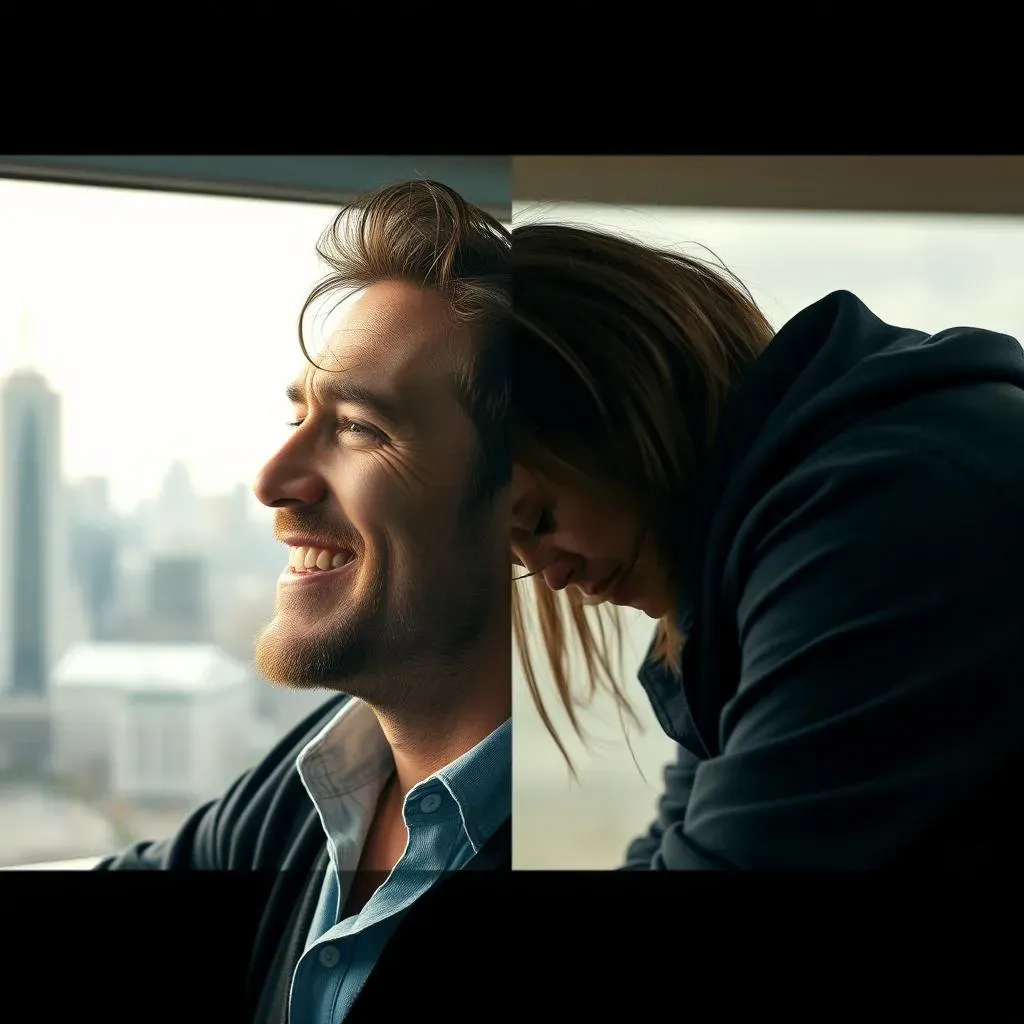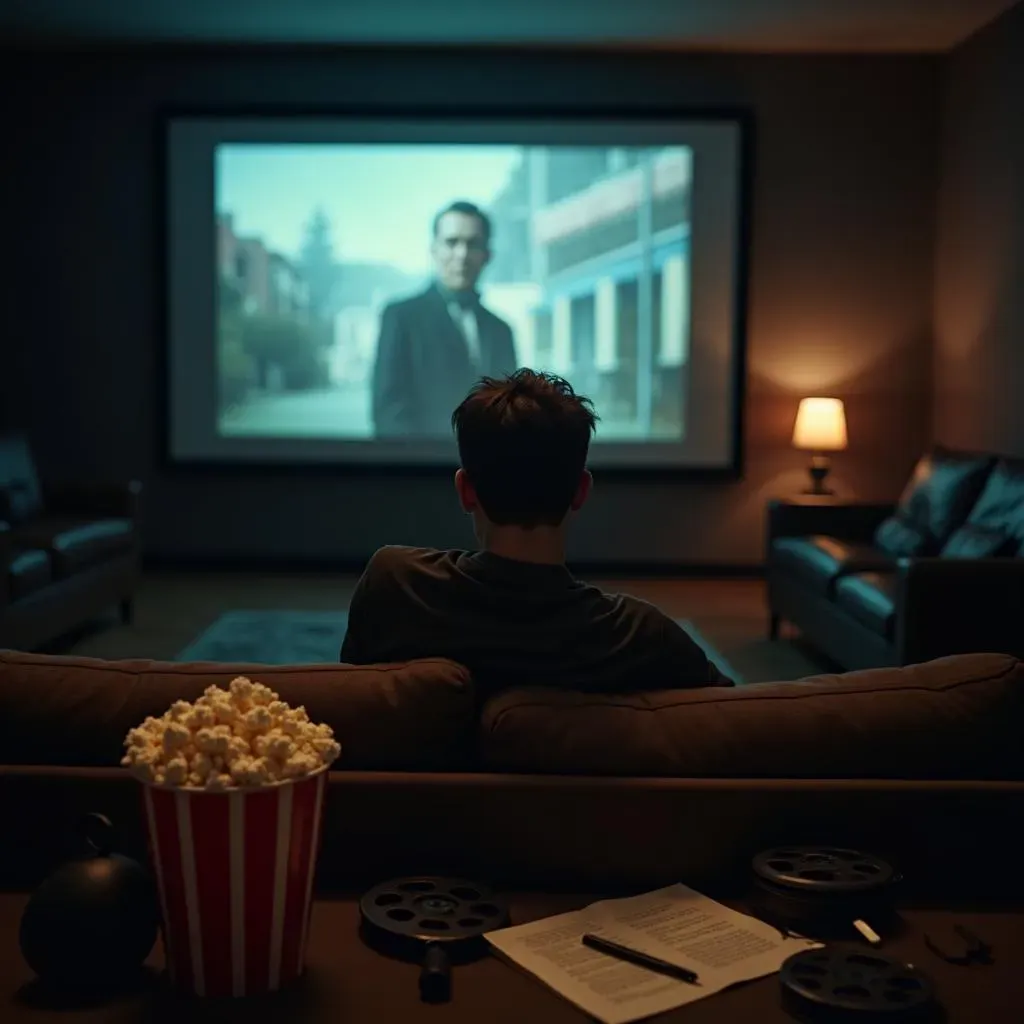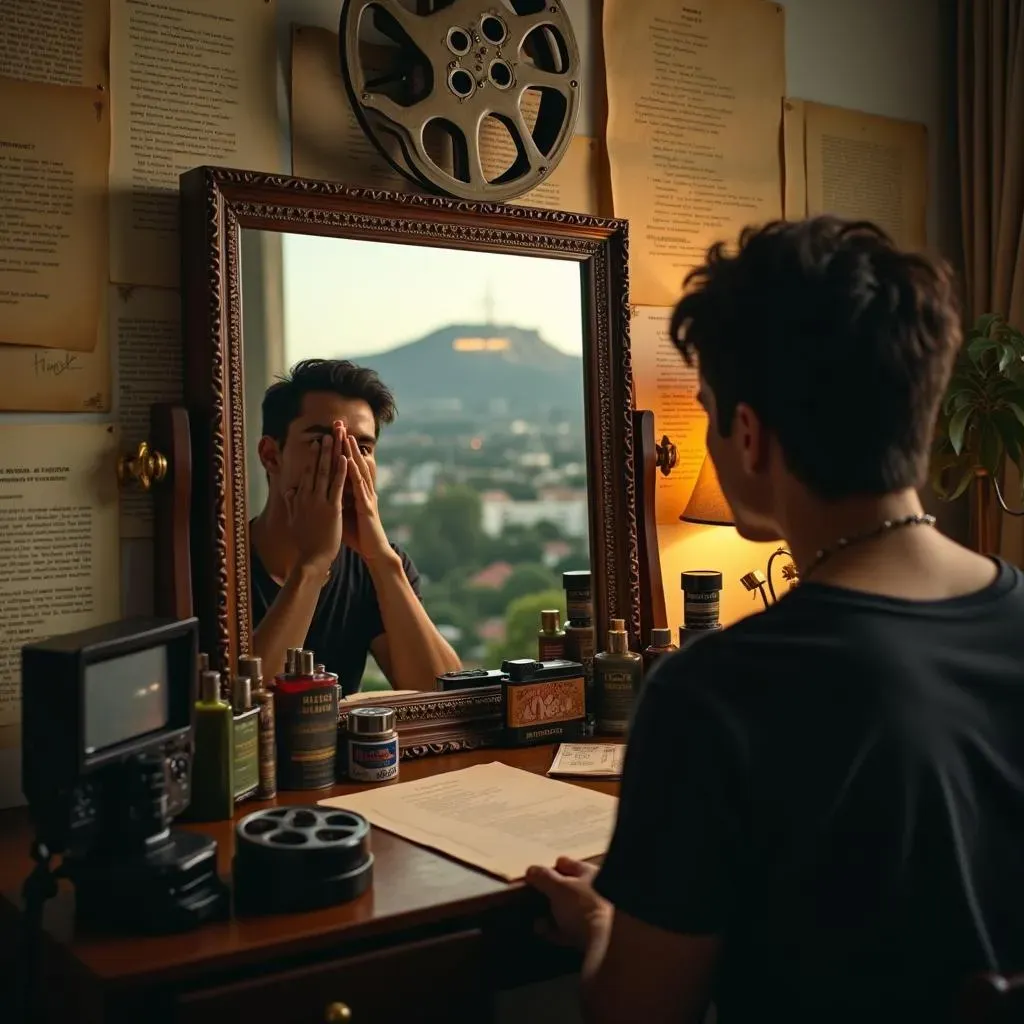Table of Contents
Ever wonder what goes on behind the glitz and glamour of Hollywood? The red carpets, the flashing cameras, the seemingly perfect lives... it all hides a truth: even the biggest stars have regrets. This article explores the fascinating question of "what roles do celebrities regret?" We'll dive into the stories of famous actors and actresses who've openly discussed their career disappointments, revealing the surprising reasons behind their remorse. From box office bombs to roles that clashed with their personal values, we'll uncover the hidden costs of fame and the impact of regrettable choices on a celebrity's mental health and public image. We'll analyze how these experiences have shaped their future decisions, influencing not only their acting choices but also their public persona. Prepare to discover the human side of Hollywood, beyond the headlines and carefully crafted public appearances. Get ready for a journey into the world of celebrity regrets, where we explore the complex interplay between personal growth, career ambition, and the ever-present pressure of the public eye. This isn't just about missed opportunities; it's about the journey of self-discovery and how even the most successful navigate the challenging waters of regret. Let's uncover some surprising truths about the roles that continue to haunt Hollywood's biggest names.
From Blockbusters to Bombs: Examining Celebrity Role Regrets

From Blockbusters to Bombs: Examining Celebrity Role Regrets
Box Office Busts and Burning Bridges
So, you're diving into celebrity role regrets? Fantastic! It's a juicy topic, isn't it? Think about it – these aren't just actors; they're brands. A poorly received role can be a PR nightmare. Take Halle Berry's turn as Catwoman, for instance. While she's a phenomenal actress, that film...let's just say it didn't exactly catapult her career to new heights. It's a stark reminder that even A-listers can stumble. Sometimes, the script just isn't there, the director's vision is muddled, or the chemistry with co-stars is lacking. The pressure to deliver a hit is immense, and occasionally, the pressure is too much to handle. It’s a gamble, and sometimes the house wins.
And it's not just about the movie itself. The whole experience can leave a mark. Long hours, intense pressure, creative clashes... it can all take a toll. Remember what celebrities go through during scandals? A bad movie can sometimes feel like a minor scandal all on its own! The aftermath can be brutal – negative reviews, disappointed fans, and the constant questioning of career choices. It's a high-stakes game, and there are no guarantees.
Celebrity | Regrettable Role | Reason |
|---|---|---|
Halle Berry | Catwoman | Poorly received film, negative impact on career |
Edward Norton | The Incredible Hulk | Creative differences with the director |
Beyond the Box Office: Personal Values and Artistic Integrity
But it’s not always about box office numbers; sometimes, it's about something deeper. Many actors have regretted roles due to the content itself. Did the movie promote harmful stereotypes? Did it contradict their personal beliefs? These are ethical considerations that often go hand-in-hand with career decisions. Think about actors who've spoken out against roles that felt exploitative, or whose characters lacked depth or authenticity. It's a complex issue, balancing artistic expression with personal integrity, especially in an industry that often prioritizes profit over principle.
Sometimes, the regret comes later. An actor might initially accept a role for the paycheck or the prestige, only to realize later that the film's message or portrayal of characters doesn't align with their values. This can lead to a deep sense of dissonance and regret, especially as their career progresses and their understanding of the world evolves. This is where you see actors actively trying to make amends for past choices, either through charity work, public apologies, or by choosing more ethically sound projects in the future. It's a fascinating aspect of their journey, a show of growth and maturity. Want to know more about how stars choose their roles? Check out our article on how celebrities pick roles.
- Script issues: Poor writing, underdeveloped characters
- Ethical concerns: Promotion of harmful stereotypes or values
- Creative differences: Conflicts with directors or producers
The Weight of a Role: Impact on Mental Health and Public Perception

The Weight of a Role: Impact on Mental Health and Public Perception
The Emotional Toll of a Challenging Role
Hey, so you're looking at the mental health side of celebrity regrets? That's a really important angle. It's easy to forget that these are real people, not just characters on screen. Taking on a demanding role, especially one that requires intense emotional investment, can be incredibly draining. Imagine having to constantly tap into grief, trauma, or intense anger for months on end. That's not exactly a recipe for mental well-being, is it? It’s like marathon running, except instead of physical exertion, it's emotional and mental.
We often see celebrities talk about "method acting," which can involve immersing themselves fully in a character's world. While this can lead to powerful performances, it can also blur the lines between reality and fiction. If an actor isn't careful, they can get stuck in a character's emotional state, even after filming wraps. This can lead to anxiety, depression, and even burnout. It’s a tricky balancing act between artistic commitment and self-care. Want to know more about how celebrities cope with the pressures of fame? Check out our article on how celebrities deal with paparazzi.
Potential Mental Health Impact | Example |
|---|---|
Anxiety | Difficulty separating from character's emotional state |
Depression | Prolonged immersion in negative emotions |
Burnout | Intense workload and emotional demands |
Public Scrutiny and the Pressure to Perform
Then there’s the added layer of public scrutiny. Celebrities are constantly judged, analyzed, and criticized. A poorly received role can amplify this pressure, leading to self-doubt, anxiety, and even depression. Negative reviews, harsh social media comments, and the constant pressure to meet expectations can be incredibly damaging to mental health. It's a vicious cycle: a bad role can lead to negative feedback, which in turn exacerbates mental health issues, making it harder for the celebrity to bounce back.
Think about the constant comparisons to previous roles. If a celebrity has had previous successes, any perceived failure can feel magnified. This can be particularly challenging for actors who've become known for a specific type of role and then try to branch out into something new. The pressure to live up to the audience's expectations can be enormous, leading to anxiety and a fear of failure. It’s a lot of pressure for anyone, let alone someone constantly in the public eye. For more on how celebrities navigate these challenges, check out our piece on how celebrities handle scandals.
- Negative reviews and social media criticism
- Pressure to meet audience expectations
- Comparisons to previous successful roles
Long-Term Effects and Career Trajectory
The impact of a regrettable role can extend far beyond the initial release of the film. It can affect future casting decisions, leading to fewer opportunities and a potential decline in career momentum. This, in turn, can further impact a celebrity's mental health and self-esteem. It's a domino effect: one bad role can trigger a chain reaction of negative consequences, impacting not only their career but also their well-being.
However, it's also important to remember that many celebrities have bounced back from setbacks. They’ve learned from their mistakes, used their experiences to grow, and emerged stronger and more resilient. This resilience is a testament to their strength of character and their ability to adapt and overcome adversity. Their stories are a reminder that even in the face of significant challenges, it's possible to find success and fulfillment. And for those wondering about the financial side of things, we have a great article on how much celebrities earn.
Beyond the Screen: The Business of Regret and Career Choices

Beyond the Screen: The Business of Regret and Career Choices
The Dollars and Cents of Regret
Let's be real, this isn't just about artistic integrity; it's about cold, hard cash. A poorly received role can significantly impact a celebrity's earning potential. Think about future endorsement deals, movie offers, and even their overall brand value. A flop can lead to fewer opportunities, lower paychecks, and a harder time attracting high-profile projects. It's a business decision as much as an artistic one, and sometimes, the financial consequences of a bad choice can be severe. It's not just about the immediate financial loss from a film's failure; it's the ripple effect that extends into future opportunities.
This is where things get really interesting. We often hear about the exorbitant salaries of A-list actors, but what about the lost potential earnings from a role that didn't work out? The missed opportunities can be substantial. It's a fascinating financial equation: the potential gains versus the actual losses, and how these calculations influence future career choices. The impact can be long-lasting, affecting not just their immediate income but also their future earning capacity. Want to know more about the financial lives of celebrities? Check out our article on celebrity earnings.
Financial Impact | Example |
|---|---|
Reduced endorsement deals | Fewer brand sponsorships after a box office bomb |
Lower paychecks | Reduced fees for future roles due to decreased marketability |
Missed opportunities | Inability to secure high-profile roles after a failure |
Career Pivots and Image Rehabilitation
But here’s the thing: regret doesn't always mean the end of the road. Many celebrities have successfully navigated these career setbacks. They use their experiences to learn, adapt, and reinvent themselves. It's about image rehabilitation, carefully choosing future roles to showcase their talent and versatility. It's a strategic process, a calculated effort to regain lost ground and redefine their public image. It's a testament to their perseverance and ability to learn from their mistakes.
Sometimes, a celebrity might even use a past regret as a springboard for future success. They might deliberately seek out challenging roles, pushing their boundaries and showcasing their growth as an actor. This can be a powerful way to demonstrate their resilience and commitment to their craft. It's about turning a negative into a positive, using past experiences to fuel future achievements. For more insight into how celebrities build their careers, check out our article on how celebrities get famous.
- Strategic role selection: Choosing projects that showcase growth and versatility
- Public relations management: Addressing past regrets and rebuilding public image
- Creative reinvention: Exploring new genres and demonstrating adaptability
Lessons Learned: How Regrets Shape Future Performances and Public Image

Lessons Learned: How Regrets Shape Future Performances and Public Image
Refining the Craft: Growth Through Regret
So, we've talked about the downsides of regrettable roles – the financial hits, the mental health struggles, the public backlash. But what about the upside? Believe it or not, regret can be a powerful catalyst for growth. Think of it as a harsh but effective teacher. It forces introspection, pushing celebrities to analyze their past choices, identify weaknesses, and ultimately, refine their craft. It's a process of self-reflection that can lead to significant improvements in their acting abilities and overall career trajectory. They start to understand what resonates with audiences, what kind of roles truly excite them, and how to better navigate the complexities of the entertainment industry. This journey of self-discovery can be transformative, leading to more nuanced and impactful performances in the future.
This newfound self-awareness often translates into more informed career decisions. Celebrities who've experienced regret become more discerning about the roles they choose, prioritizing projects that align with their values and artistic goals. They become more assertive in negotiations, demanding better scripts, stronger characters, and more creative control. This newfound confidence allows them to take on more challenging roles, pushing their boundaries and showcasing their evolution as actors. Want to know more about how celebrities hone their skills? Check out our article on improving acting skills.
- Increased self-awareness
- Improved decision-making
- More assertive career choices
Rebuilding the Brand: Image and Public Perception
A regrettable role can also impact a celebrity's public image. However, this isn't always a negative thing. How celebrities handle their regrets can actually shape their public perception. Openly acknowledging mistakes, showing vulnerability, and demonstrating a commitment to growth can garner respect and admiration from fans. It humanizes them, making them more relatable and endearing. It's a chance to connect with their audience on a deeper level, demonstrating authenticity and self-awareness. This can lead to a stronger and more positive public image in the long run.
Think about celebrities who've used their past experiences to advocate for positive change. They might speak out against harmful stereotypes, promote diversity and inclusion, or support charitable causes. This kind of activism not only helps repair their public image but also positions them as role models and leaders within their community. It's a powerful way to turn a negative experience into a positive force for good. For more on how celebrities interact with their fans, check out our article on connecting with fans.
Action | Impact on Public Perception |
|---|---|
Openly acknowledging mistakes | Increased relatability and authenticity |
Demonstrating commitment to growth | Enhanced respect and admiration |
Activism and social responsibility | Positive image as role model |